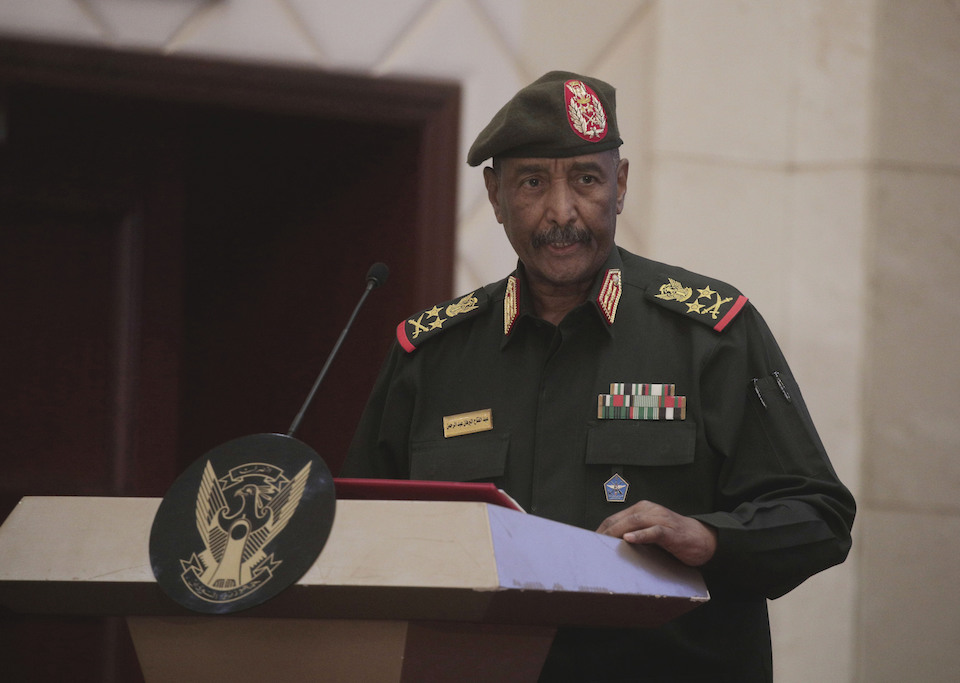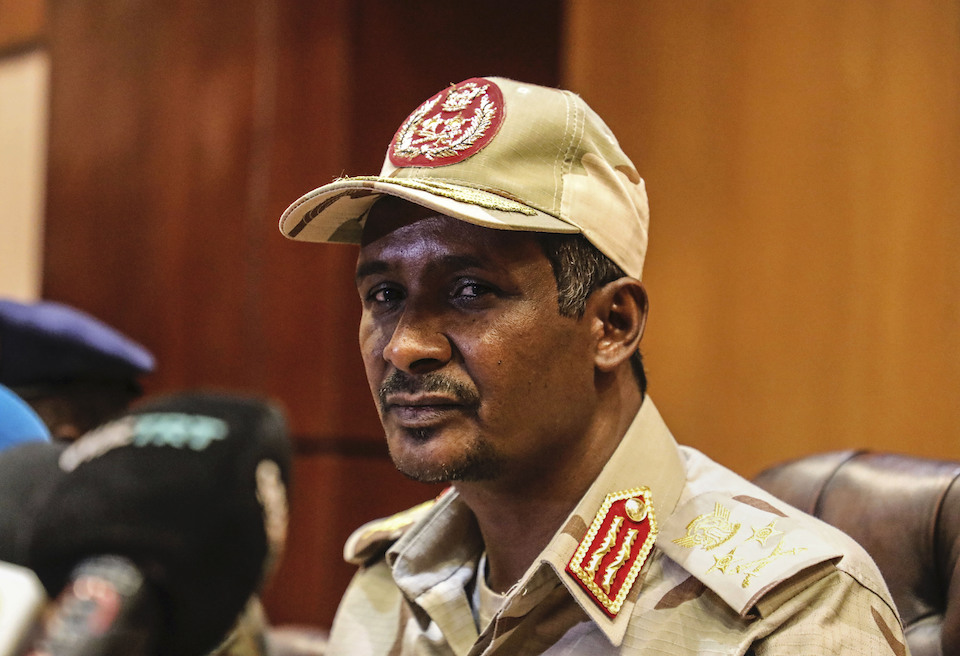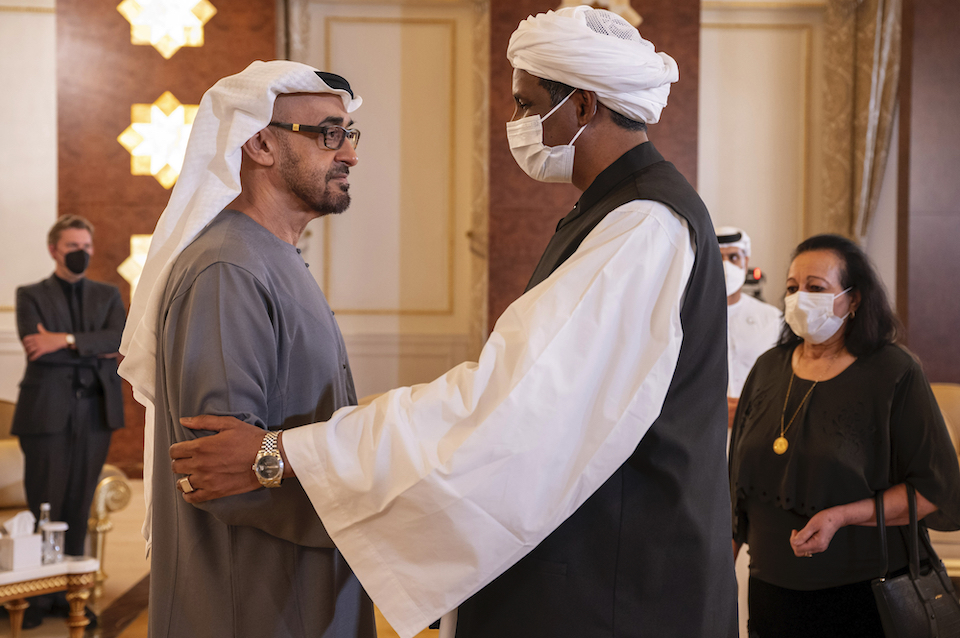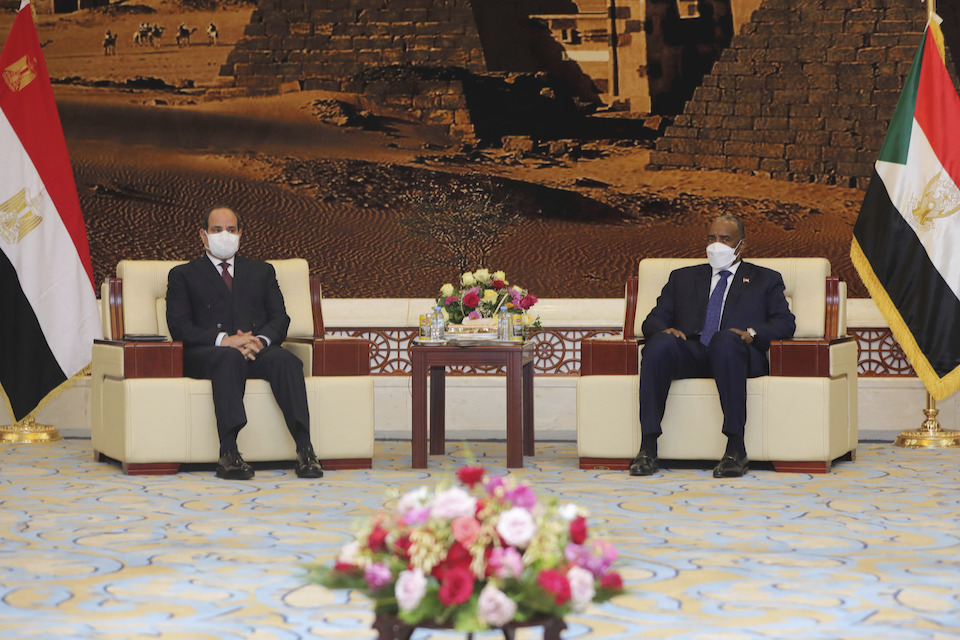
A civil war or, perhaps, more correctly, a proxy war? Whichever way you approach it, the ongoing Sudanese conflict emerges through a web of power and dependency relationships that cut across the internal and external borders of the African continent, reflecting an intensifying multipolar rivalry, mostly between middle/regional powers.
Officially, on Sudan in the last 24 hours there has been a clash between two sides, both Sudanese.
On the one hand, the side of the 62-year-old Abdel Fattah al Burhanwho leads the country’s official Sudanese Armed Forces (SAF), numbering between 120,000 and 220,000.
On the other hand, 50 years Mohammed Hamdan Dagaloalso known as He metleader of the paramilitary Rapid Support Force (RSF), estimated to be between 30,000 and 100,000 strong.
Currently, within the Sudanese borders, Burhan is presented as the de facto leader of the country, and Hemeti as … a contender for power, a contender who, nevertheless, has impressive connections not only within the country, but also abroad, while many emphasize that they have already reached the point that they were overloaded with the export of Sudanese gold, etc.
Recent elections and coups
Burkhan and Hemeti are not claiming power through elections or democratic processes, but by force of arms in a country that has been running for elections since April 2015.
The only thing that the Sudanese have not been able to do over the past eight years is to go to the polls. However, during the same period they lived coups (in 2019 and 2021) and political upheavals, mass protests (in 2019, since hundreds of dead protesters in Khartoum) and bloody clashes (in recent days, the dead numbered in the hundreds, and the wounded in the thousands).
President for Life, Omar al-Bashirwas overthrown in 2019, after three decades in power (1989-2019), in a coup in which his former subordinates even played a leading role, Abdel Fattah al Burhan And Mohammed Hamdan Dagalothat is, the military, who are now exchanging fire.
With the ouster of Bashir, Sudan is theoretically in search of a new era of democratic rule, with the military as the guarantor of a safe and orderly transition to that day. The original plan called for the military to hand over power to the civilian population within 39 months.

Thus, in the context of an attempt to move towards a new political/multi-party rather than a militarized system of government in Sudan, transitional governing councils, some of which were military (Transitional Military Council – TMC), have been established in recent years. and other political/military (Sovereignty Council – Transitional Sovereignty Council).
However, the military was not ready to hand over power, and so a new coup took place in October 2021, with Abdel Fattah al-Burhan and Mohamed Hamdan Dagalo again as the protagonists.

But then what many analysts predicted happened: Burhan and Dagallo collided with each other. The reasons, or rather the reasons that led to this conflict, are many: the official Sudanese Armed Forces (SAF) of Burhan would like to absorb/integrate the Paramilitary Rapid Support/Intervention Force (RSF) of Dagalo or Hemeti for more than two years, but the paramilitary the militias are unwilling to integrate before a decade has passed, while Hemeti (who hails from Darfur and is viewed with suspicion by members of the Sudanese military’s old guard) is asking for a “promotion” in an attempt to rise to the same level as Burhan.
The disbandment of the paramilitaries and the formation of a unified military under political/popular control is a key demand of those who dare to speak of democracy and democratic transition in Sudan. However, the military clearly does not want to cede power, much less submit to any… political control.
Based on the foregoing, one could speak of a civil war between different military poles.
The role of “outsiders”
However, as has happened in recent years in other wars such as the civil war (in Libya, Syria, Yemen etc.), as well as Sudan… no one fights alone, without outside help.
Jean-Baptiste Gallopin wrote many years ago, then an ECFR (European Council on Foreign Relations) researcher, that Omar al-Bashir was overthrown in a coup d’état in 2019 because Saudi Arabia, the United Arab Emirates and Egypt (t . – is also called the Arab troika), who supported the Sudanese military, who overthrew him. And this, with the ultimate goal of then withdrawing Sudan from its sphere of influence Qatarher Türkiye And her muslim brotherhood (but also his Iran, from which, however, Khartoum had already begun to drift away years earlier). Bashir came to be seen as unreliable in their eyes at a time when their feud with Qatar and those supported by Qatar (see Turkey/Erdogan, Muslim Brotherhood) was at its height.
Significance of Sudan
Sudan, the third largest country in Africa, a country bordering Egypt but also with her Libya, among other things, is not in itself a “minor amount”. He has deposits from gold which are now mainly exported to the Emirates (in which deposits, among other things, the Russian Meroe Gold, a subsidiary of M-Invest, “invested”) – now world-famous due to the group’s mercenaries Wagner – Evgeny Prigozhin). It has oil and arable land that the Saudis and Emirati have invested in so they can feed themselves. It also has conflicts with neighboring states (with Ethiopia for the dam of the Nile and the disputed area of Al-Fashagha on the border), but also for the coast at the center of international trade Red sea.
It is no coincidence that the Minister of Foreign Affairs of Russia Sergei Lavrov visited Sudan last February (in close contact with Abdel Fattah al-Burhan and Mohammed Hamdan Dagalo or Hemeti), he recalled Russia’s intention to acquire naval base on their Sudanese shores Red seaa base that will allow her to access it Indian Ocean.
Thus, the international “interest” in Sudan is not only present, but also strong, and in recent years this interest has been tried to take advantage of the Sudanese military, either Burhan or Dagalo or Hemeti, to gain a foothold.
The Sudanese armed forces and militias have been significantly strengthened in recent years, both economically and militarily, thanks to Egypt, Saudi Arabia, United Arab Emirates as good as Russia.
It is noted that these military and paramilitary forces also control much of the country’s wealth-producing resources, generating untaxed super-profits from the largely “impoverished” people they control by force or alms.
Contacts abroad
If you go to Hemeti’s personal Twitter account, you can see his meeting abroad with the Russian Foreign Minister. Sergei Lavrov and an emirate sheikh Muhammad bin Zayed, including. Hemeti was in fact, coincidentally, in Moscow at February 24, 2022that is, on the day when the Russian forces invaded Ukraine. At the same time, it is reported that the RBG paramilitaries, which he leads, have established links with Prigozhin’s Russian Wagner mercenaries, with whom Burkhan’s side is also negotiating.

If, on the other hand, one looks at the schedule of meetings held by Abdel Fattah al-Burhan in recent years, one can see a series of tete-tete-tete with his president. Egypt Abdel Fattah al-Sisi.
Now, in 2023, Sisi’s Egypt appears to support Burhan and the side of the emirate of Mohammed bin Zayed Dagalo. It should be recalled that the military/paramilitaries of said Sudanese were found several years ago also fighting on the Yemeni front on the side of Saudi Arabia against the Iranian-backed Houthi rebels, while Sudanese mercenaries were also reported to have fought in Libya on the side of the Saudi-backed Emirates of Khalifa Haftar. However, in light of Burhan’s conflict with Dagallo, the question arises whether there is a danger that Sudan will become a proxy for intra-Arab confrontation and conflict between external middle/regional powers.
“One of the worst things that can happen is that what we have lived for the last 24 hours turns into a regional conflict.“, warns for its part in an interview with the FT, o Ambassador of Norway in Sudan by Endre Stiansen, whose residence in Khartoum was hit by a rocket last Sunday.

According to the FT analysis, Saudi Arabia And UAE (which together with USA And Great Britain they are also part of the group Quadruple) are now trying to maintain a balance between Burkhan and Dagalo, contributing to the de-escalation of the crisis. On the other hand, however, Egypt Sisi is said to still view the head of the Sudanese RSF paramilitaries with great suspicion, if not outright hostility.
The French agency AFP in its analysis emphasizes that Burkhan is closer Israelwhile Dagalo, on the other hand, maintains important bases in Sudan’s neighboring countries, such as, for example, Chad. The people of Burkhan are in the minority, while the people of Dagalo are considered more “martial”. How the feud between them will develop… remains to be seen, however reports of a truce are currently inconclusive as both view their eventual defeat as an existential threat to their own operations, meaning it will be very difficult for them to compromise or settle down. .
“Can the international community stop the fighting in Sudan?” asks Al Jazeera in its analysis, stressing, however, that there is now growing international concern about the “impact that this conflict could have” in the Horn of Africa and outside of it.
“This conflict is not only about Sudan,” Eurasia Network analysts say for their part, emphasizing that regional players are adding fuel to the fire of this conflict to serve their interests in a region that already stands out as one of the most volatile in the world. “Unrest in Sudan could spread to neighboring countries such as Chad and Eritrea, sparking a potentially uncontrollable regional crisis.“, they warn.
Source: Kathimerini
Anna White is a journalist at 247 News Reel, where she writes on world news and current events. She is known for her insightful analysis and compelling storytelling. Anna’s articles have been widely read and shared, earning her a reputation as a talented and respected journalist. She delivers in-depth and accurate understanding of the world’s most pressing issues.